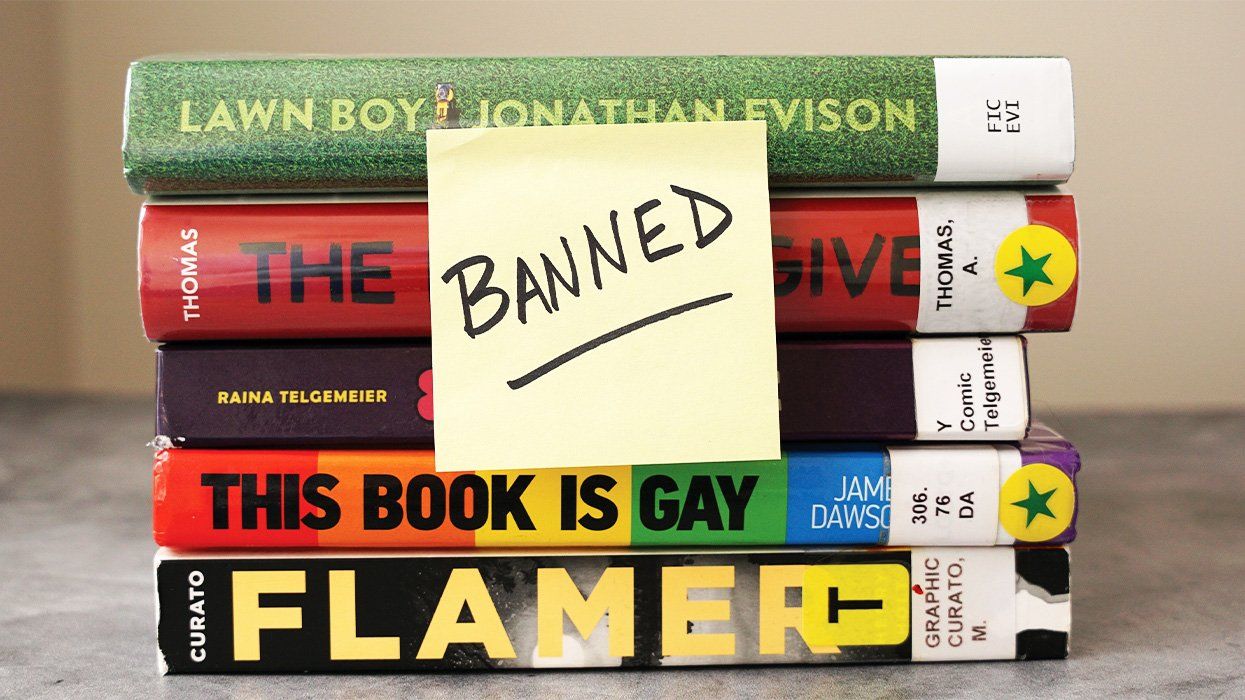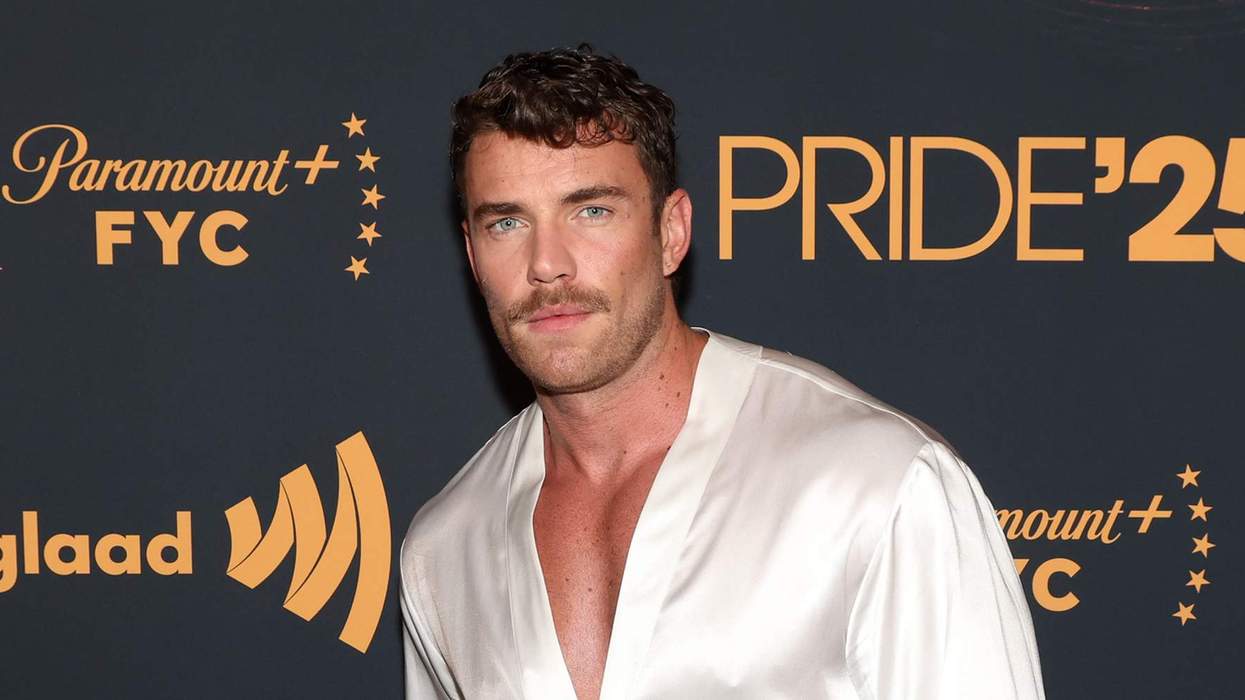I hold a heavy thing in my hand, a hardbound copy of Ulysses by James Joyce, one of the most famously banned books in history. It’s just a book. A hard one, but nothing to be afraid of. It almost did not survive. On its second printing in 1922, a mere run of 2,000 copies, 500 were seized by New York’s postal authorities as “indecent material.” On its third printing of only 500 copies, 499 were seized by customs in Folkestone, England, for similar reasons. But other publishers came, believed in it its literary merit despite the hate, and gave it life. It is now deemed an English literary classic.
It’s a difficult book, and I wonder how many of the many people who have pushed to ban it over the years — some quite recently in the U.S. — actually read it. Only book nerds like me read it. Yet many people believe it must not be read.
The books causing uproar now among American conservatives — including an extremist group called Moms for Liberty — are mostly books about queer kids, for queer kids, or written by queer authors. Like George M. Johnson’s young-adult novel All Boys Aren’t Blue and the graphic novel Gender Queer by Maia Kobabe, and even the beloved The Perks of Being a Wallflower by Stephen Chbosky.
Recently, this very magazine was removed from the Northern Cambria Public Library in Pennsylvania after the board deemed it pornographic; the library director Justin Brown resigned in protest. “Libraries should be safe havens for all ideas and identities, not places where censorship takes root under the guise of protecting the community,” Brown later told The Advocate, Out’s sister publication.
These publications aren’t Ulysses. Unbanned, they might be read by countless kids across the nation. No one reads Ulysses to save their own life, to survive. That’s what these books are for. So banning them is different. Doing so isn’t an objection to obscenity but rather an objection to queer kids living.
I was one of those queer kids reading books like this in high school, though there weren’t so many back then. I made do with banned classics like The Picture of Dorian Gray, whose gay author, Oscar Wilde, went to prison in 1895, and Allen Ginsberg’s poem “Howl,” which in 1957 was the subject of a famous “obscenity trial” that resulted in a landmark win over censorship.
Accordingly, I became an adult who would write a book, My Love Is a Beast: Confessions, so sexually graphic that “there are parts of the world where it is not legal to sell,” according to my publisher. This is not the same as being banned from a school library, as my book is really not for kids. But it is interesting: Freedom to read and publish is tenuous at best across the world and always has been. This means that American conservatives, zealots, and angry moms are hell-bent on undermining one of our most precious rights.
I asked Ben Miller, a queer historian and author of Bad Gays — a history of naughty queer figures from antiquity to modern times — his thoughts on this. “The first thing the Nazis burned when they took power in Germany in 1933 were the archives and library of the Institute for Sexual Science, a center for queer and trans politics and health care,” he warns. “Their political and ideological descendants in the U.S. appear to have similar priorities.”
“Today’s censorious conservatives and fascists are focused on the same things censorious conservatives and fascists have always been focused on: art and ideas that encourage tolerance, justice, equality, and the freedom of people to change the station of life to which they were assigned at birth,” he adds. “This is because both the conservative and the fascist political projects are concerned with maintaining and strengthening existing hierarchies to benefit people already at the top.”
So what can we do, we private citizens? To answer that, I thought of my publisher, Patrick Davis, who founded Unbound Edition Press in protest — against censorship and the commercialized world of publishing — and for the explicit purpose of publishing books that would not get published elsewhere. Like mine. He calls this mission “literary dissent.”
“People must support the vital work of PEN America,” he says. “This is a heroic organization taking on these bans at the local level across the nation. And readers and booksellers must buy the books they’re told not to read. That is a political act of dissent unto itself. Reading is political.”
Miller adds: “People interested in fighting antigay book bans and curriculum challenges should involve themselves in local teacher and public sector worker union efforts. Unions are our strongest allies. They protect courageous teachers and librarians who face the brunt of these bans, who often choose to stand up for queer people and queer kids at great personal risk.”
Finally, I spoke with Stephan Ferris. After a long porn career, Ferris became an attorney working for and with the adult film industry, which is currently facing its own worsening censorship in the U.S. He is an experienced free speech activist and wrote a book, Blue Movie, that is also illegal to sell in parts of the world. (It depicts, in excruciating detail, his history with meth addiction and gay chem sex).
“People must support and join advocacy groups like the ACLU and the American Library Association,” he says. “Students can join student government and advocacy groups and use their voices to push for change. Illinois recently became the first state in the U.S. to outlaw book bans through this advocacy.”
It’s true. Last June, Illinois adopted House Bill 2789, which “protects the freedoms of libraries to acquire materials without external limitation.” This followed public outcry and student activism when PEN America reported over 1,477 efforts to ban books nationwide in the first half of the 2022-2023 school year, which resulted in 874 banned books. By the end of the school year, those numbers rose to 3,362 and 1,557, respectively.
Some of those books were cute, illustrated stories about gay penguins (And Tango Makes Three by Peter Parnell and Justin Richardson). Some were banned because they have trans and queer characters. One was Night by Elie Wiesel, a devastating account of how the author survived Nazi concentration camps in the Holocaust — banned, perhaps, because American conservatives don’t want us reminded of book burnings and what follows them.
Why ban a book? Because certain people think the ideas in them are dangerous. Yes, they are. Ideas are powerful. Stories matter. Queer stories on TV are not enough — and your favorite queer stories on TV and film, like Prime Video’s Red, White, and Royal Blue, were books first. Because, in Miller’s words, “for people living in situations where accessing queer TV and media would be dangerous, the availability of such material for free in the public sphere is essential.” And in Davis’s words: “TV and film representations are important, but they are not the same as serious literary consideration of the LGBTQ+ experience. Our lives deserve to be honored with a deeper examination that only writers can provide.”
Here are my words. I wrote My Love Is a Beast not to shock people, not to indoctrinate anyone or spread kink (though if you find you are kinky after reading it, welcome to my family). I wrote it to connect with others like me. That is, in my view, what all writing does or attempts to do: It traverses time and space to unite two humans, writer and reader, in the same world. I write books so slutty, sad homos like me dancing at the fringe of the fringe of society can see a life like theirs in print — a message in a bottle saying we are not alone. Efforts to stop that connection go against my very being.
I just finished my second book. It should publish sometime in 2025. It’s another message in a bottle, and it will only live when another queer person reads it and thinks, Hey, he’s like me! Book bans are an effort to prevent that from happening — to keep our kids isolated, our lives unrecorded, un-honored, in the dark.
We have spent too much time in the dark. I, for one, will not go back. We are the adults in the room. We fight these bans for kids out there like us — who are looking to us to do something. That’s the job. We must not fail.
It’s hard to galvanize outcry in a general public that doesn’t read much, but it’s not just about books. It’s about what happens after they get taken off the shelf.
Alexander Cheves is a writer, sex educator, and author of My Love Is a Beast: Confessions from Unbound Edition Press. Follow him on Instagram, @badalexcheves.
This article is part of the Out January/February issue, which hits newsstands on February 6. Support queer media and subscribe — or download the issue through Amazon, Kindle, Nook, or Apple News on January 23.






























